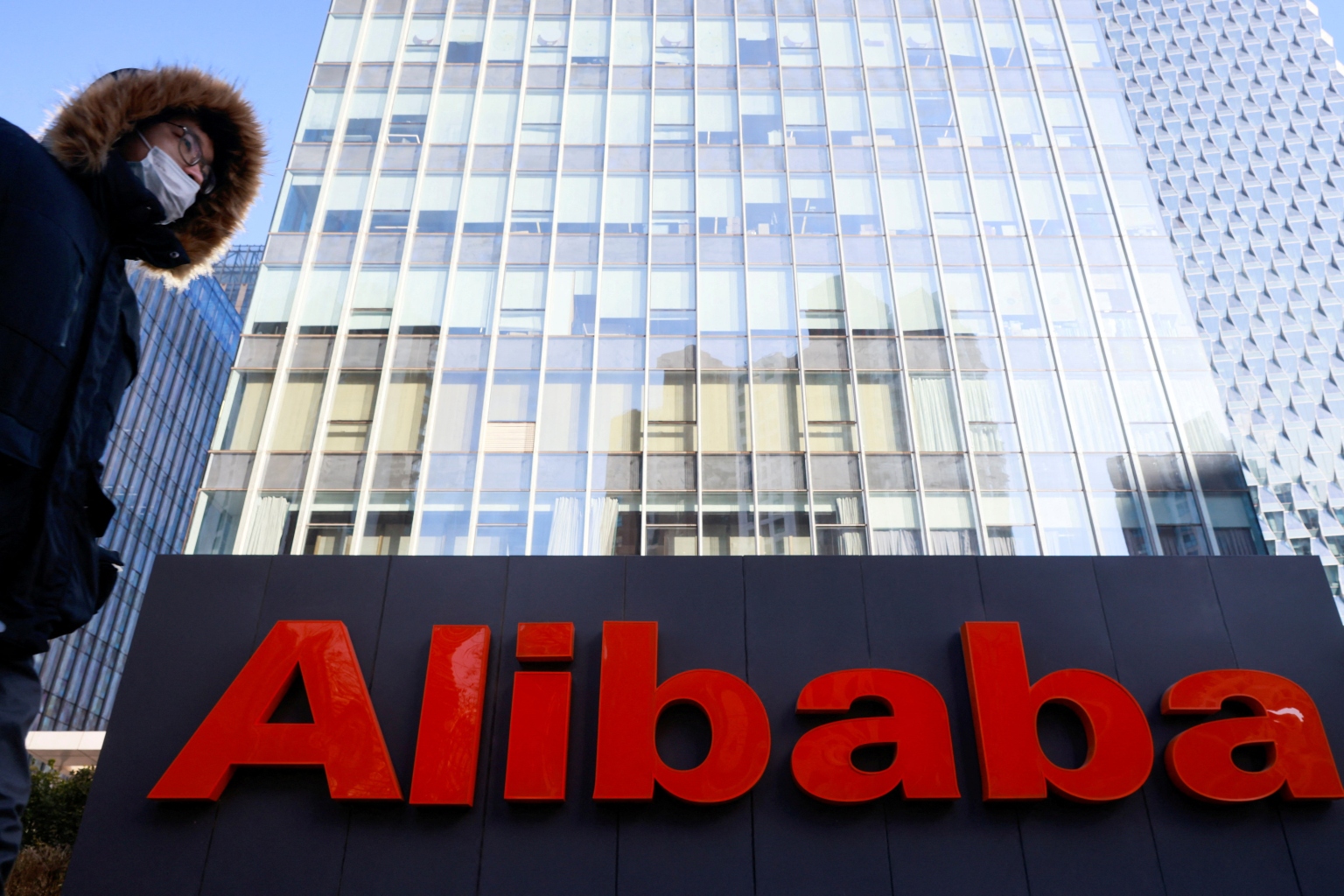JD, Alibaba stock exodus from New York intensifies
Sign up now: Get ST's newsletters delivered to your inbox

Alibaba Group Holding's Hong Kong-listed share portion rose to 56 per cent on April 21 from 53 per cent at the start of the year.
PHOTO: REUTERS
Follow topic:
HONG KONG (BLOOMBERG) - Investors are shifting more of their shares in Chinese e-commerce giants to the Hong Kong market, as Beijing's efforts have yet to dispel concerns over the companies' eligibility to remain listed on Wall Street.
About 77 per cent of JD.com's shares were circulating in Hong Kong's clearing and settling system as at Tuesday (April 19), versus 44 per cent at the beginning of this year, according to Bloomberg calculations based on stock exchange data. Alibaba Group Holding's Hong Kong-listed share portion rose to 56 per cent from 53 per cent during the same period, the data shows.
Most of this year's conversions at Alibaba and JD.com took place this month, even as China modified a decade-old rule that potentially removed a key hurdle for US regulators to gain full access to auditing reports.
While other companies that are listed in both Hong Kong and New York have not seen a similar scale of share conversion this year, the moves by shareholders at Alibaba and JD.com highlight that the US delisting risk remains a concern. By slashing exposure to American depositary shares, investors avoid direct regulatory shocks that may force trading suspensions and liquidation of their stock in the United States.
"We are buying incrementally through the Hong Kong shares instead of US shares," said Mr Louis Lau, fund manager at Brandes Investment Partners, who added that Beijing's efforts lowered the possibility of delisting, but the odds still stood at 50 per cent.
"The attention is now shifting onto implementation - how will China grant US audit access and to what companies," he said.
The US and China have been at odds for two decades over the mandate that all companies that trade publicly in America grant access to audit work papers. Firms face removal if they shirk requirements for three straight years, meaning they could be kicked off the New York Stock Exchange and Nasdaq as soon as 2024.
The US Securities and Exchange Commission has named at least 23 Chinese companies on a list of those that are running afoul of the auditing requirements.
There are more than 200 Chinese firms that are listed in the US, of which about 20 companies also have a listing status in Hong Kong, and that group is expected to increase. Holders of depository receipts can hand their US shares back to the depository bank to register a conversion, which then swaps them into Hong Kong-listed shares at a set ratio. The portion of Hong Kong-listed shares at JD.com and Alibaba almost doubled last year.
To be sure, a conversion does not offset all of the risks introduced by US delisting. Investors will need to deal with a less liquid market and potentially lower valuation when shares are shifted back to Hong Kong.
The Hang Seng Tech Index has dropped 27 per cent in Hong Kong this year, and the risk of abandoned US listings remains a key overhang for the sector. Didi Global tumbled on Monday after the Chinese ride-hailing giant said it is planning to delist its US-traded shares before it finds a new venue for the stock.

